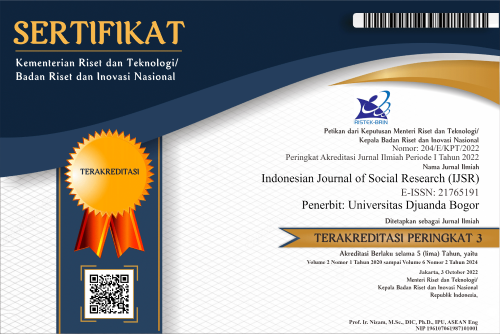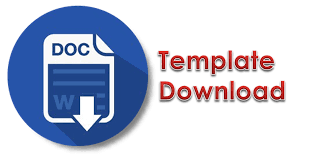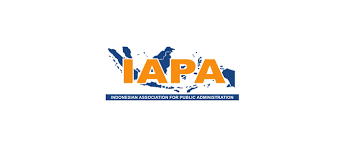Improving Student’s Eco-Literacy Skills Through the Use of The Eco-Literacy Module
Abstract
This research is motivated by the low level of eco-literacy of elementary school students. This study aims to improve students' eco-literacy skills by using the eco-literacy module. The method used in this study is an experimental method with the object of research being 40 students The sample chosen was 40 respondents consisting of 18 male students and 22 female students of Karangsambung III State Elementary School, Kadipaten District, Majalengka Regency, West Java Province. The instrument used tests and non-tests, to measure knowledge consisting of 20 questions, and to measure attitudes used attitude observation sheets, and the psychomotor instrument used performance tests. Data analysis techniques in this study used the independent sample t-test with a significance level of 0.05. In addition, to find out how much the level of effectiveness of using the eco-literacy module has on students' ecological abilities, the researchers conducted the Cohen's d test. The results showed that the use of the eco-literacy module could improve the eco-literacy ability of elementary school students. The increase in ability is influenced by the activities of students and teachers in the learning process in the classroom. The eco-literacy module has a positive impact on students so that students become enthusiastic about learning so they don't feel bored when studying the material. Based on the research results, other schools need to implement eco-literacy-based learning modules in an effort to form better ecological literacy and the ability to solve environmental problems
References
Anifa, Anward, & Neka. (2017). Differences in littering behavior of students between before and after provided with live and symbolic modeling. Jurnal Ecopsy, 4(2), 96–102.
Arga, H. S. P., & Rahayu, G. D. S. (2019). Influence of Environment-based Learning Materials to Improve the Eco-literacy of PGSD Students. Mimbar Sekolah Dasar, 6(2), 208. https://doi.org/10.17509/mimbar-sd.v6i2.17521
Desfandi, M., Maryani, E., & Disman. (2017). Building Ecoliteracy Through Adiwiyata Program (Study at Adiwiyata School in Banda Aceh). Indonesian Journal of Geography, 49(1), 51–56. https://doi.org/10.22146/ijg.11230
Dewberry, E. (2016). Eco-literacy in Transition: The role of design ecologies in developing our capacity for radical change. 11.
Ds, Y. N. (2020.). Effectiveness of Activities 3R (Reuse, Reduce, Recycle) in Improving the Ecoliteracy of Students in Elementary School. 2, 8.
Fadjarajani, S., & As’ari, R. (2021). Ecopedagogy based learning as an effort to increase student ecoliteration and the development of environmental care characters. IOP Conference Series: Earth and Environmental Science, 683(1), 012046. https://doi.org/10.1088/1755-1315/683/1/012046
Febriani, R., Farihah, U., & Nasution, N. E. A. (2020). Adiwiyata School: An environmental care program as an effort to develop Indonesian students’ ecological literacy. Journal of Physics: Conference Series, 1563(1), 012062. https://doi.org/10.1088/1742-6596/1563/1/012062
Firdausi, A., & Wulandari, F. E. (2021). Development of Web-Based Science Learning Module in Improving the Students’ Understanding of Eco-Literacy. Jurnal Penelitian dan Pengkajian Ilmu Pendidikan: e-Saintika, 5(3), 241–252. https://doi.org/10.36312/esaintika.v5i3.426
Gunansyah, G., Zuhdi, U., Setyaningrum, T. W., & Bernardi, B. (2020). Teacher’s Perceptions of Ecoliteracy Practice to Sustainable Communities in Primary Schools: Proceedings of the International Joint Conference on Arts and Humanities (IJCAH 2020). International Joint Conference on Arts and Humanities (IJCAH 2020), Surabaya, East Java, Indonesia. https://doi.org/10.2991/assehr.k.201201.078
Hartono, R. (2020). Evaluating Sustainable Education Using Eco-Literacy. HABITAT, 31(2), 78–85. https://doi.org/10.21776/ub.habitat.2020.031.2.9
Hilmi, M. I., Lutfiansyach, D. Y., Hufad, A., Kamil, M., & Wahyudin, U. (2021). Eco-Literacy. First Transnational Webinar on Adult and Continuing Education (TRACED 2020), 118–121.
Itafarida, S., Herupradoto, E. B. A., Rosyidah, U. N. D., & Rusnaningtias, E. (2019). Family-based collaborative eco-literacy model for sustainable city. Masyarakat, Kebudayaan dan Politik, 32(2), 168. https://doi.org/10.20473/mkp.v32i22019.168-178
Johns, R. A., & Pontes, R. (2019). Parks, rhetoric and environmental education: Challenges and opportunities for enhancing ecoliteracy. Journal of Outdoor and Environmental Education, 22(1), 1–19.
Lam, M. E. (2014). Building ecoliteracy with traditional ecological knowledge: Do, listen, and learn. Frontiers in Ecology and the Environment, 12(4), 250–251.
Latifah, A., Sumantri, S., & Supriatin, A. (2020). Internalization of Eco-Literacy Values for Students in Islamic Elementer School Fathia Cibeureum Sukabumi City. JOURNAL OF CRITICAL REVIEWS, 7(12), 6.
Lees, M. (2017). Effect of contemplative pedagogy on the ecoliteracy of undergraduate public state university students [PhD Thesis]. Walden University.
Lestari, H., & Siskandar, R. (2020). Cultivating Green Behavior of Eco Literation-Based Elementary School Students during the COVID-19 Pandemic. Jurnal Penelitian Pendidikan IPA, 7(1), 49–53. https://doi.org/10.29303/jppipa.v7i1.477
Lestariyanti, E., & Hakim, M. A. (2020). Qaryah Thayyibah: Reposisi Eco-Literacy Melalui Pendidikan Berbasis Masyarakat. 5, 11.
Lopez-Leon, R., & Encino-Muñoz, A. G. (2020). Ecoliteracy: Shaping the design process from a systems-based perspective. Dalam Research & Education in Design: People & Processes & Products & Philosophy (hlm. 57–64). CRC Press.
Maulana, O. S., & Surtikanti, H. K. (2020). Development of E-Module Based on Cirebon Local Environment in Fostering Eco-Literacy of Student. 2, 15.
Maulidah, N., Sunanih, Rahman, & Supriatna, N. (2021). Creative Play and Learning in Natural Environment to Develop Creative-Ecoliteracy in Elementary School Students. Journal of Physics: Conference Series, 1764(1), 012112. https://doi.org/10.1088/1742-6596/1764/1/012112
McBride, B. B., Brewer, C. A., Berkowitz, A. R., & Borrie, W. T. (2013). Environmental literacy, ecological literacy, ecoliteracy: What do we mean and how did we get here? Ecosphere, 4(5), 1–20.
Muliana, A., Maryani, E., & Somantri, L. (2018). Ecoliteracy Level of Student Teachers (Study toward Students of Universitas Syiah Kuala Banda Aceh). IOP Conference Series: Earth and Environmental Science, 145(1), 012061.
Nadiroh, N., Hasanah, U., & Zulfa, V. (2019). Behavioral geography: An ecoliteracy perspective and critical thinking skills in men and women. The Indonesian Journal of Geography, 51(2), 9–17.
Nadiroh, N., Zulfa, V., & Yuliani, S. (2021). Learning transformation of the 21 st century curriculum for prospective teacher in term of eco-literacy. IOP Conference Series: Earth and Environmental Science, 802(1), 012009. https://doi.org/10.1088/1755-1315/802/1/012009
Noviana, E., Kurniaman, O., Salwa, N., Hermita, N., Afendi, N., Zufriady, Z., Munjiatun, & Misliati, M. (2019). Ecological Knowledge of Elementary School Students Through the Use of Ecoliteracy Teaching Materials in Curriculum 2013. Journal of Physics: Conference Series, 1351(1), 012071. https://doi.org/10.1088/1742-6596/1351/1/012071
Nugraha, R. G., Jalal, F., & Boeriswati, E. (2022). THE URGENCY OF THE ECOLITERACY MODULE IN IMPROVING THE. InCoLLT, 43–56.
Nurbaeti, I., Supriatna, N., & Zulfikar, H. A. (2020). Improvement of student ecoliteracy through contextual teaching and learning based on outdoor study in elementary social studies learning. International Conference on Elementary Education, 2(1), 986–997.
Nurlaili, S., Sapriya, & Priscylio, G. (2020). Eco-literacy-textbook: Instructional need to improve students’ environmental awareness in a primary nature school. Journal of Physics: Conference Series, 1567(4), 042060. https://doi.org/10.1088/1742-6596/1567/4/042060
Okur-Berberoglu, E. (2014). The Comparison of New Zealand and Turkey Within In-Service Teachers’ Eco-Literacy Levels. 22.
Puspitasari, R. & Khomarudin. (2020). Outdoor Learning as the Development of Eco Literacy Skills in Learning Social Studies in Secondary School. Proceedings of the International Conference On Social Studies, Globalisation And Technology (ICSSGT 2019). International Conference On Social Studies, Globalisation And Technology (ICSSGT 2019), Padang, Indonesia. https://doi.org/10.2991/assehr.k.200803.035
Rosidah, C. T., Putrayasa, I. B., Wesnawa, I. G. A., & Candiasa, I. M. (2022). Thematic comic to cultivate eco-literacy for young learners. Kasetsart Journal of Social Sciences, 43(3), 735–740. https://doi.org/10.34044/j.kjss.2022.43.3.27
Rosyid, N. U., Budiaman, B., & Hasanah, U. (2019). Improving Coastal Children Eco-Literacy in Environmental Learning Through Mangroves Storytelling. Formatif: Jurnal Ilmiah Pendidikan MIPA, 9(3). https://doi.org/10.30998/formatif.v9i3.3651
Seidl, E. (2021). Eco-literacy and life sustain-abilities for the empowerment of translation students. https://doi.org/10.13140/RG.2.2.27181.00485
Sigit, D. V., Azrai, E. P., Heryanti, E., Ichsan, I. Z., Jajomi, Y. P., & Fadrikal, R. (2019). Development Green Consumerism E-Book for Undergraduate Students (GC-EBUS) as learning media in environmental learning. Indian Journal of Public Health Research and Development, 10(8), 2026–2031. https://doi.org/10.5958/0976-5506.2019.02152.1
Sigit, D. V., Prastiwi, L., Ristanto, R. H., & Rifan, M. (2021). Adiwiyata school in Indonesia: A correlation between eco-literacy, environmental awareness, and academic ability with environmental problem-solving skill. Journal of Physics: Conference Series, 1796(1), 012068. https://doi.org/10.1088/1742-6596/1796/1/012068
Snow, T. (2020). Ecosystem Metabolisms and Functions: An eco-literacy framework and model for designers. FormAkademisk - Forskningstidsskrift for Design Og Designdidaktikk, 13(4), 4. https://doi.org/10.7577/formakademisk.3370
Sullivan, S. (2018). Fostering Eco-Literacy: One Library’s Take on Environmental Learning. Children and Libraries, 16(2), 33–34. https://doi.org/10.5860/cal.16.2.33
Supriatin, A. (t.t.). Jil Internalizatin of eco Atin S.pdf. 8.
Suryanda, A., Komala, R., & Usmania, A. (t.t.). ECO-LITERACY: WHICH BETTER EITHER JOINING STUDY GROUP OR SELF STUDY? 8.
Tiwari, P. (2022). Influence of Millennials’ eco-literacy and biospheric values on green purchases: The mediating effect of attitude. Public Organization Review. https://doi.org/10.1007/s11115-022-00645-6.
Copyright (c) 2022 Indonesian Journal of Social Research (IJSR)

This work is licensed under a Creative Commons Attribution-ShareAlike 4.0 International License.
The Authors submitting a manuscript do so on the understanding that if accepted for publication, copyright publishing of the article shall be assigned/transferred to Indonesian Journal of Social Research (IJSR) Universitas Djuanda as Publisher of the journal. Upon acceptance of an article, authors will be asked to complete a 'Copyright Transfer Agreement'. An e-mail will be sent to the corresponding author confirming receipt of the manuscript together with a 'Copyright Transfer Agreement' form by online version of this agreement.
Indonesian Journal of Social Research (IJSR) Universitas Djuanda, the Editors and the Editorial Board make every effort to ensure that no wrong or misleading data, opinions or statements be published in the journal. In any way, the contents of the articles and advertisements published in the Indonesian Journal of Social Research (IJSR) Universitas Djuanda are sole and exclusive responsibility of their respective authors and advertisers.
Remember, even though we ask for a transfer of copyright, our journal authors retain (or are granted back) significant scholarly rights as mention before.
The Copyright Transfer Agreement (CTA) Form can be downloaded here: Copyright Transfer Agreement-IJSR 2020
The copyright form should be signed electronically and send to the Editorial Office e-mail below:
Dr. Rasmitadila, M.Pd (Editor-in-Chief)
Universitas Djuanda
Jl. Tol Jagorawi No.1, Ciawi, Kec. Ciawi, Bogor, Jawa Barat 16720
Website: http://journal.unida.ac.id/index.php/IJSR/index
Email: ijsr@unida.ac.id





4.png)



